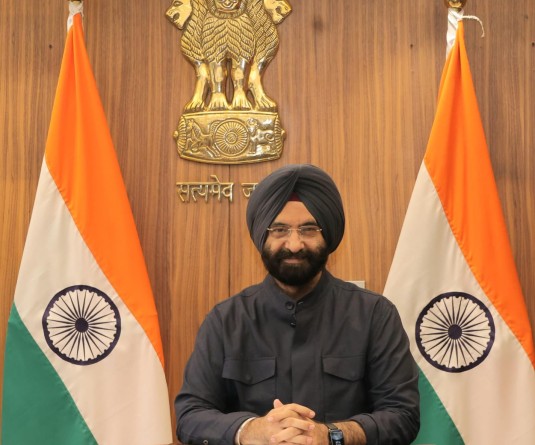New Delhi: A girl beaming with happiness after tying a Rakhi on the wrist of Prime Minister Narendra Modi during Raksha Bandhan celebrations in New Delhi, August 9, 2025. (IANS)
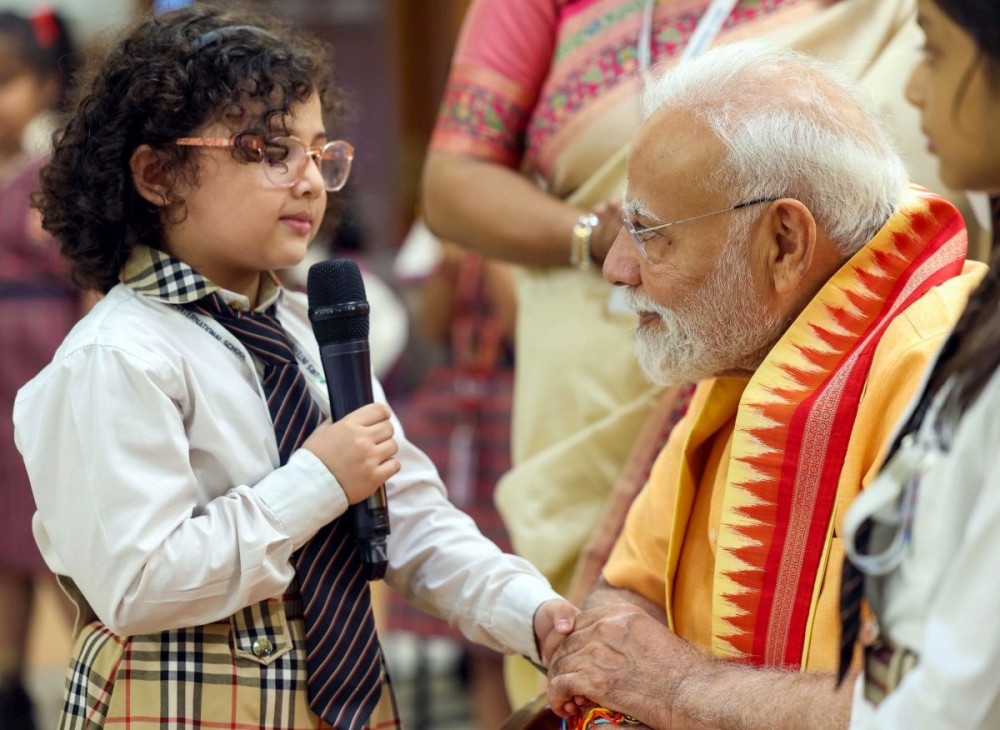
New Delhi, August 9 (IANS) Prime Minister Narendra Modi celebrated Raksha Bandhan, the festival marking pious bond between brother and sister, at his 7 Lok Kalyan Marg (LKM) residence in the national Capital on Saturday.
The festive celebration saw many schoolchildren and Brahma Kumaris tying 'rakhis' on PM Modi's wrist and offering sweets.
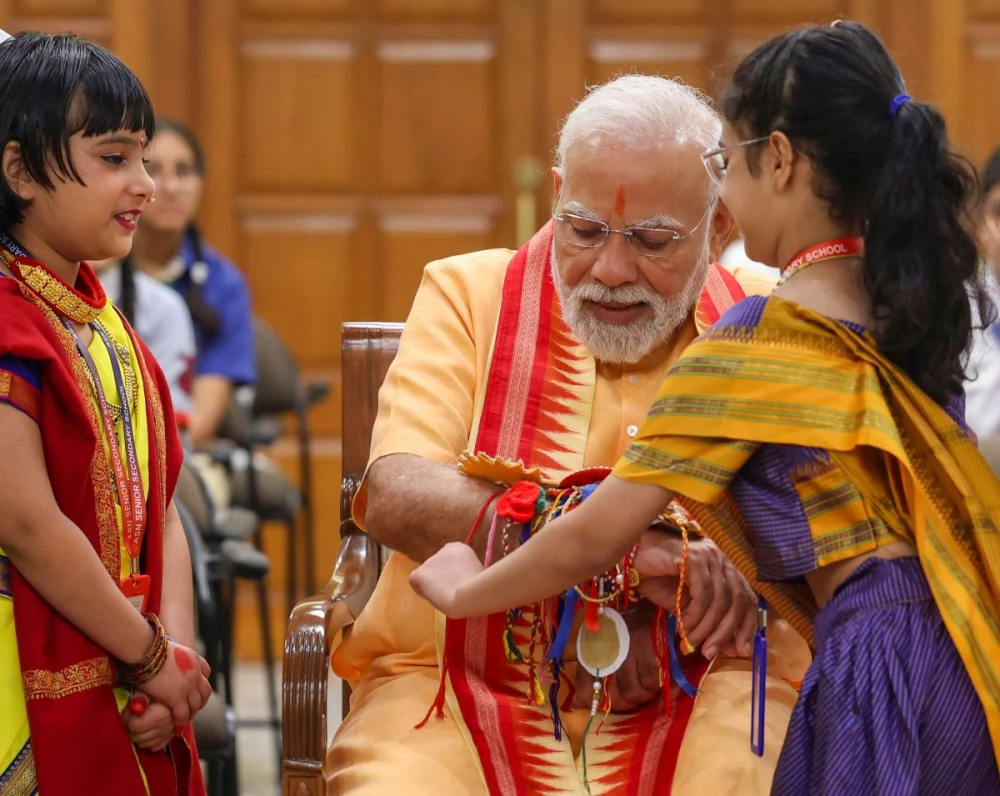
The heartwarming moment saw children showing their affinity and affection for the Prime Minister in multiple ways – by shaking hands, extending warm smile, giving warm hugs, engaging in conversation and also planting a peck on his cheeks. The Prime Minister also reciprocated his affection for kids by embracing and showering them with blessings.
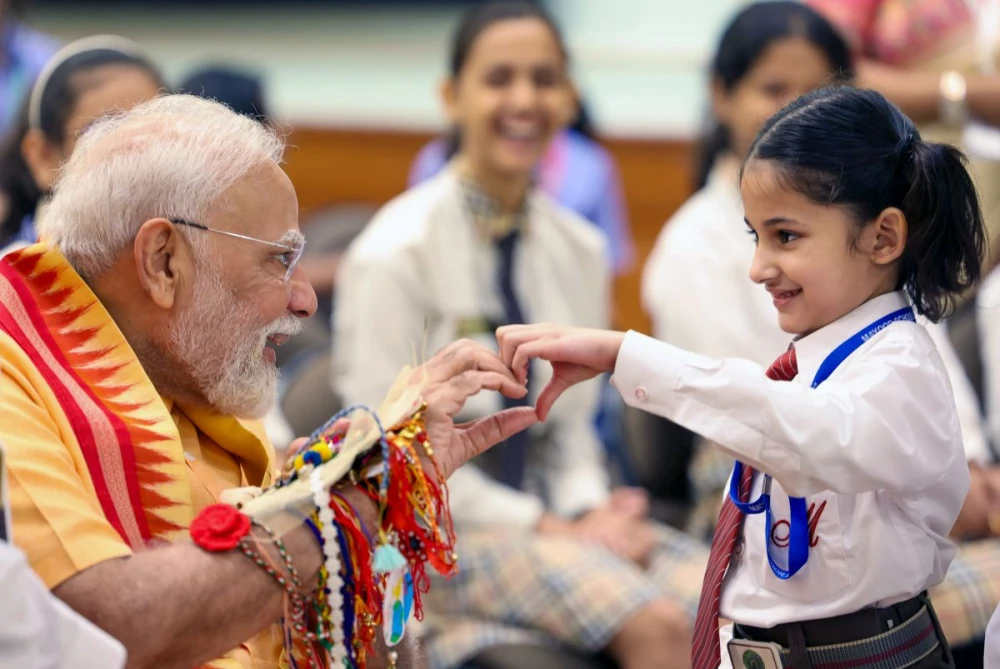
In the pictures shared by the Prime Minister's office, a large group of children be seen teeming around PM Modi at his official residence and tying 'rakhis' on his wrist, one by one.
Braham Kumaris – the largest spiritual organisation in the world led by women, were the highlight of this year's Raksha Bandhan at PM's official residence. Several Braham Kumaris tied the sacred thread while the Prime Minister vowed to relentlessly work for their betterment.
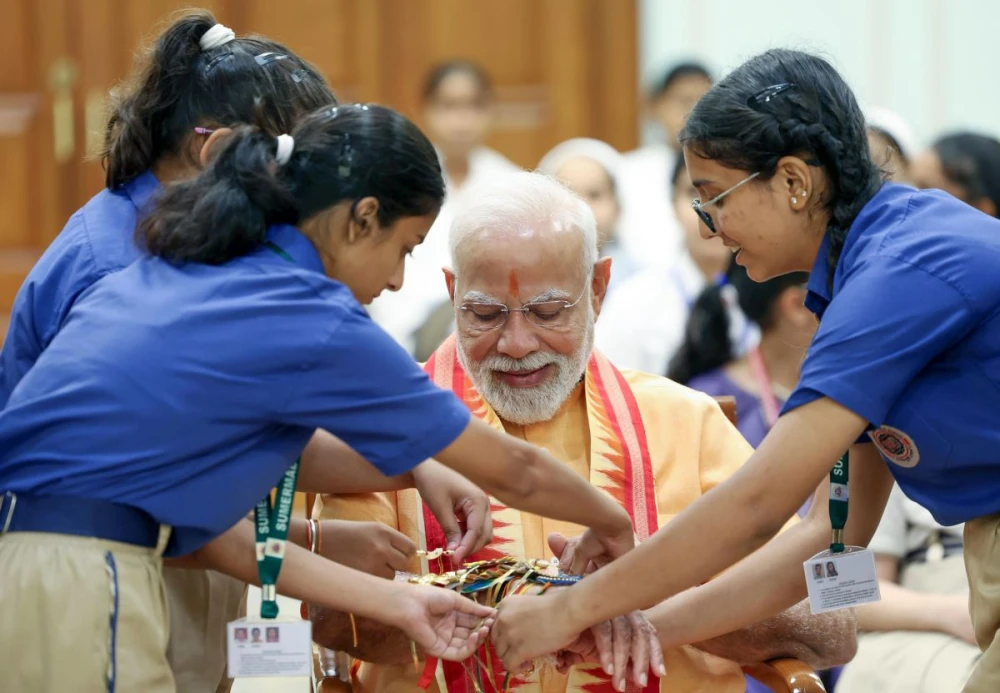
Earlier in the day, PM Modi also greeted the nation and countrymen on the auspicious occasion of Raksha Bandhan – the festival celebrating the traditional bond between brothers and sisters.
Taking to his social media handle on X, he wrote, "Best wishes on the special occasion of Raksha Bandhan."
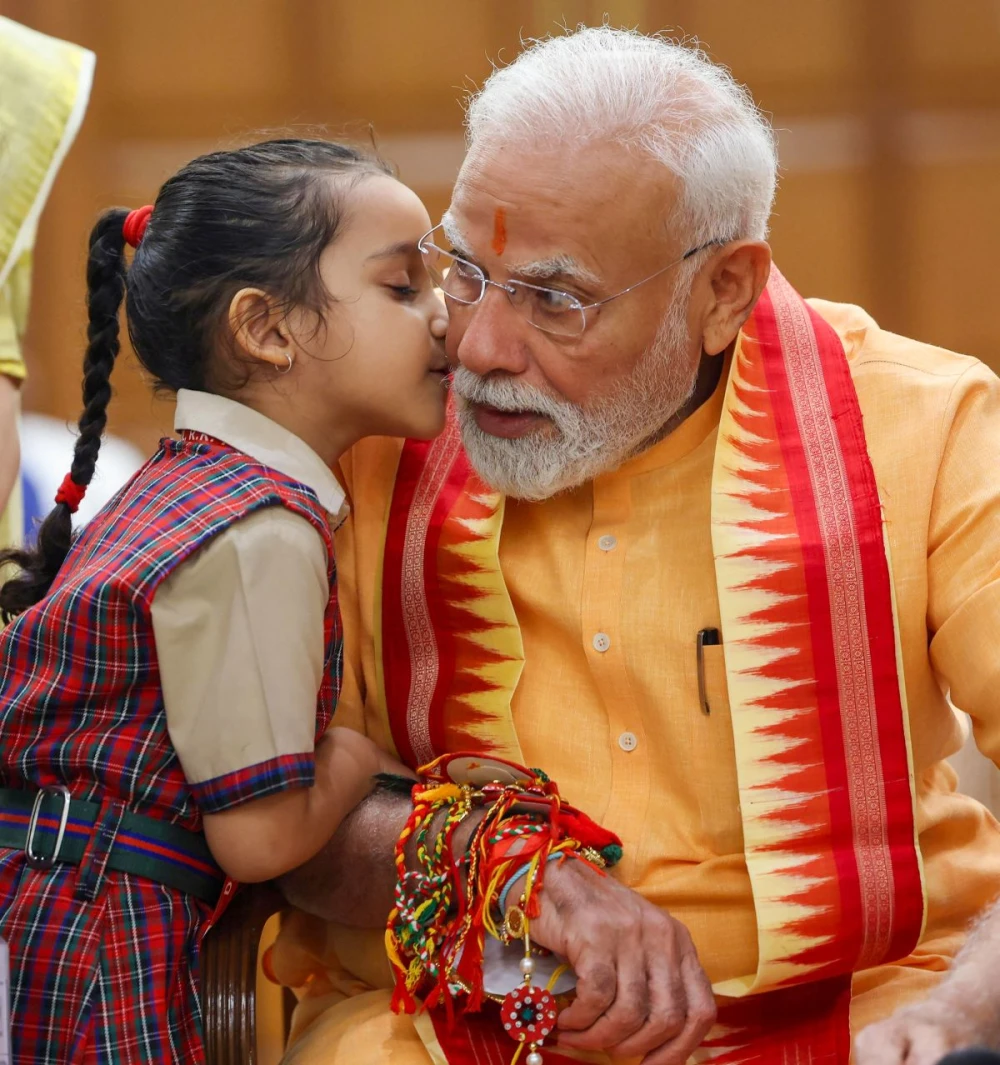
Raksha Bandhan, celebrated on full moon day of the Shravan month, honours the sacred bond between brothers and sisters.
While tying 'rakhi' (sacred thread), the sister wishes and prays for her brother's health, well-being and prosperity, while the latter pledges to protect her in all circumstances and also pampers her with gifts.
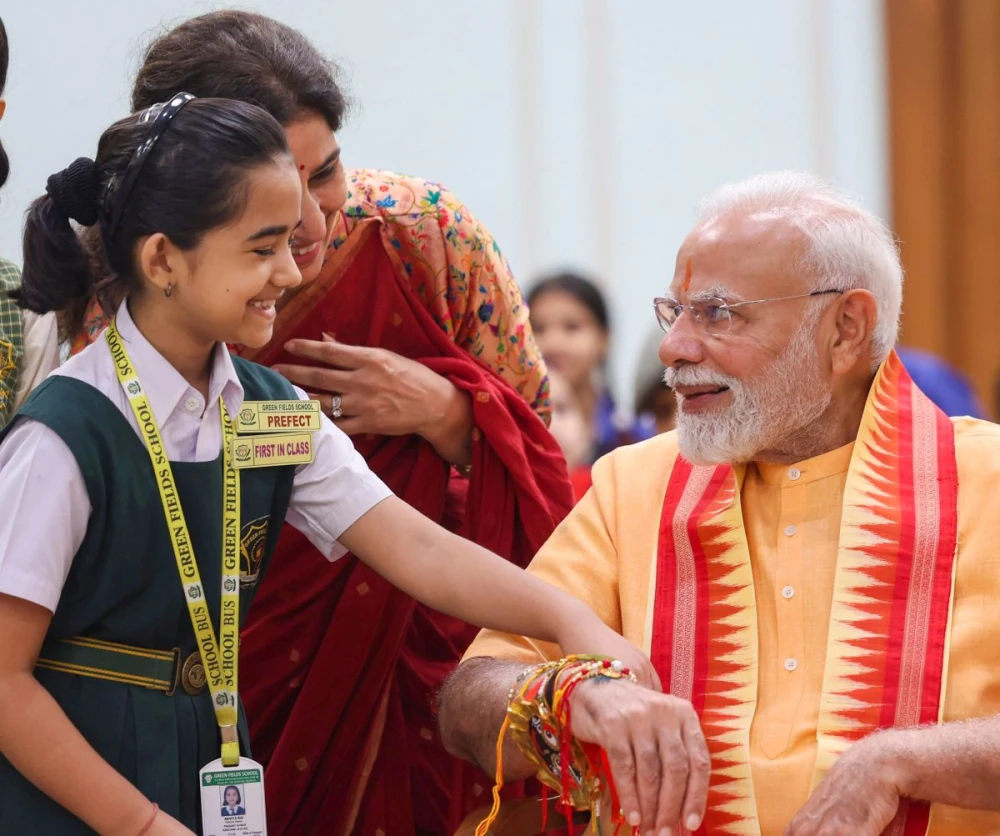
President Murmu celebrates Raksha Bandhan with children, students at Rashtrapati Bhavan
President Droupadi Murmu on Saturday celebrated Raksha Bandhan with children and students from various schools and organisations at Rashtrapati Bhavan, spreading joy and warmth on the festive occasion.
Taking to social media platform X, the President's office shared glimpses of the celebrations with a caption and said, "President Droupadi Murmu celebrated Raksha Bandhan with children and students of various schools and organisations at Rashtrapati Bhavan."
In the heartwarming images, President Murmu is seen tying 'rakhis' on the wrists of schoolchildren, symbolising the bond of protection and affection traditionally shared between siblings.
Earlier in the day, the President extended her greetings to the nation, saying, "On the auspicious occasion of Raksha Bandhan, I extend my warm greetings and best wishes to all fellow citizens living in India and abroad."
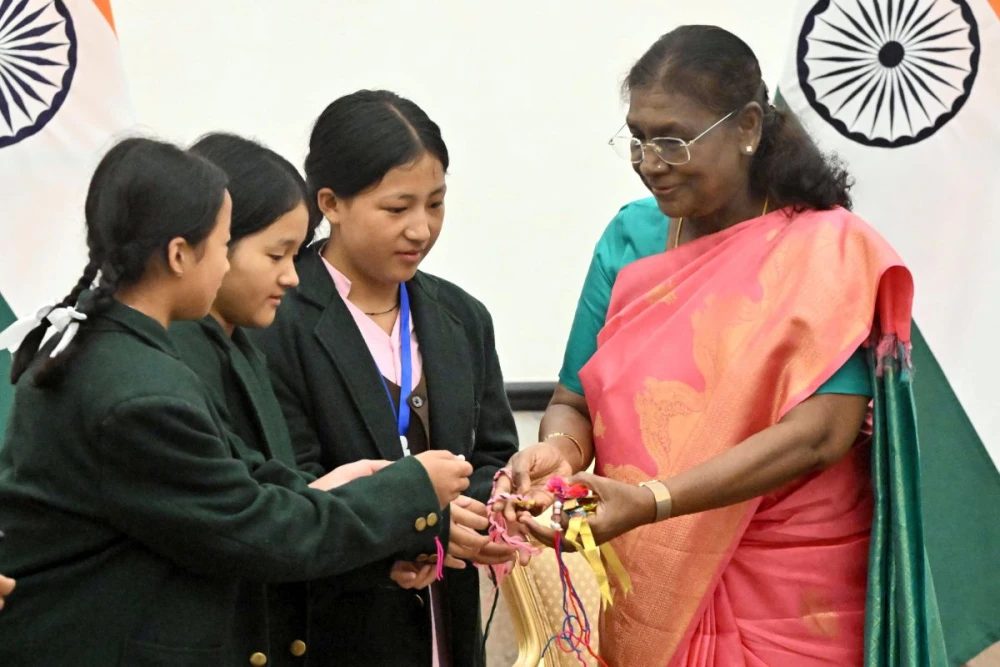
Meanwhile, Prime Minister Narendra Modi marked the occasion at his official residence at 7, Lok Kalyan Marg in the national Capital. The celebration featured vibrant moments as children and members of the Brahma Kumaris tied 'rakhis' on the Prime Minister’s wrist and offered sweets.
In pictures shared by the PMO, PM Modi is seen warmly interacting with children — shaking hands, exchanging smiles, receiving hugs, and even being affectionately kissed on the cheek. The Prime Minister reciprocated their love with blessings and endearing gestures, creating a memorable atmosphere.
Raksha Bandhan, celebrated on the full moon day of the Hindu month of Shravana, is a festival honouring the sacred bond between siblings. Traditionally, sisters tie colourful 'rakhis' on their brothers’ wrists, praying for their well-being and prosperity. In return, brothers pledge to protect their sisters and shower them with gifts.
Beyond its traditional setting, Raksha Bandhan has evolved into a celebration of affection across all types of relationships — between cousins, in-laws, and even between spiritual leaders and their followers. The phrase "Raksha Bandhan" literally translates from Sanskrit as "the bond of protection," symbolising love, duty, and mutual respect.
This vibrant festival, also observed in countries like Nepal, continues to reflect the deep-rooted cultural values of unity, care, and familial love in Indian society.





